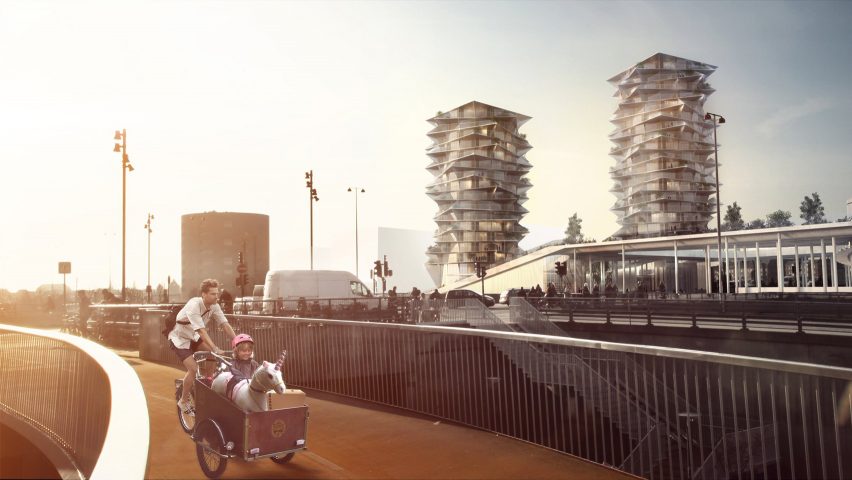This week on Dezeen, BIG released plans for a pair of residential towers in Copenhagen, while two new high-rises were approved for Liverpool, putting the stats of the city's docks as a World Heritage Site at risk.
Bjarke Ingels' firm revealed renderings of its proposed Cactus Towers, which will feature overhanging planted balconies. These are set to be built beside an IKEA store in Copenhagen's Vesterbro district.
Meanwhile, The Plaza 1821 and Hive City Docks towers by Hodder and Partners and Brock Carmichael Architects were granted approval by the city of Liverpool – despite threats that they could cause the waterside area to lose its status as a World Heritage Site,
Also in the UK, diversity within the creative industries came under scrutiny following the release of a government report, and architect David Chipperfield warned of "isolation" following the Brexit result.
Two planned demolitions in London came to to the forefront after Simon Smithson claimed politicians influenced the decision to knock down Robin Hood Gardens and it was announced that a well known brutalist car park in Soho was to be replaced by an Eric Parry Architects-designed hotel.
Also, open-plan offices were found to be damaging to employees focus levels, according to research by furniture brand Haworth, and rumours emerged of Apple employees revolting against planned shared office layouts in their new HQ.
The first images of Tadao Ando's gigantic Hill of the Buddha at the Makomanai Takino Cemetery in Japan were released, two years after its completion.
Meanwhile, Thomas Heatherwick's studio showcased new footage and imagery of their under-construction tree-covered development in Shanghai, after drone footage was revealed a few days earlier.
An installation featuring a flock of spherical drones that follows visitors around the room opened at London's Roundhouse, by Rain Room creators Random International.
In this week's tech news, it emerged that Virginia Tech's Transportation Institute had run a recent experiment about driverless-vehicles that involved disguising a human driver as a car seat.
And Nendo's founder Oki Sato, urged designers to rethink the aesthetic of contemporary gadgets and also called most of today's smart devices "useless" in an interview with Dezeen.
Popular projects this week included an "obese" house installed outside a palace in Vienna, a minimalist nail bar with industrial-style surfaces and a colourful knitwear collection celebrating fashions superficiality.

